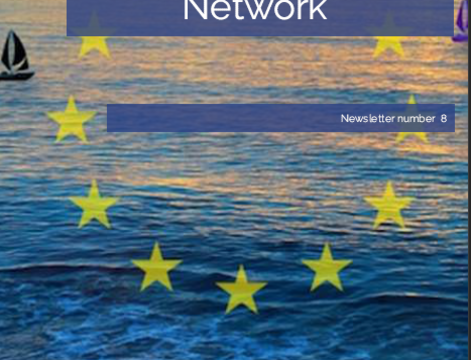
Number 8 RUP EMPLOYMENT NETWORK NEWSLETTER
Number 8 RUP EMPLOYMENT NETWORK NEWSLETTER
GROW RUP is an Interreg Europe project bringing together five EU Outermost Regions. GROW RUP supports the creation and growth of innovative companies in the field of green and blue economy, with a particular focus on long-term unemployed people in the ORs.
GROW RUP double challenge: support for SME competitiveness and employment in the ORs.
€1,169,423.00
SME competitiveness
The outermost regions (ORs) have to deal with a number of difficulties related to their geographical characteristics, such as remoteness, insularity, small size, climate, which have usually acted as a constraint on their development. In addition to these structural features, the economic crisis from which Europe has suffered in the last years has further jeopardised their economic growth.
GROW RUP fits in this framework in two ways:
The project will allow partner organisations to exchange experiences, practices and ideas among them, as well as with relevant stakeholders, and thereby find solutions to improve their regional approaches.
A key element of the project are interregional site visits, where project partners share strategies and experiences on specific themes and brainstorm with policy-makers and stakeholders to select a number of best practices.
Following interregional site visits, partner regions organise workshops for organisation staff and local stakeholders to present to the results of the site visits, validate the best practices selected and develop guidelines for the drafting of the action plans.
GROW RUP learning process is conducted during 2017-2019, after which the findings are collected, analysed and compiled into regional action plans and into the GROW RUP compendium.
GROW RUP is about working together across borders and organisations, with the support of stakeholders, to find the best solutions for regional business creation and growth
In 2019-2021 GROW RUP will move from learning to implementation. Regional actions plans are put into practice and their progress is closely monitored. Project recommendations and results will be widely disseminated to the other ORs not involved as partners in the project, as well as other EU regions to provide them with the chance to take and replicate the lessons learnt.
The policy instrument addressed is the ERDF operational programme and the specific thematic objective is TO3 ‘Improve the competitiveness of SMEs’ while the investment priority is IP3a ‘Promoting entrepreneurship, in particular by facilitating the economic exploitation of new ideas and fostering the creation of new businesses’. The policy instrument addressed falls under the Interreg Europe specific objective 2.1. IP3a is intended to promote the creation of new enterprises and to strengthen the existing ones through the provision of grants and other financial subsidies along with supporting services. Currently the measure does not prioritize the creation of businesses in the green and blue economy which are indeed priorities in the RIS3 neither its ensures the inclusion of unemployed people as beneficiary. These are two main issues which the project aims to address, given the higher unemployment rates and the untapped potential that green and blue economy represents for the archipelago. By fostering Canary Islands’ regional development and bringing the region closer to EU development rates, the project contributes to the EU regional and cohesion policy. Since this thematic objective is common to all ERDF programmes in Europe and that 449 NUTS2 are maritime regions in Europe, the theme addressed in the project has also a clear EU added value.
The policy instrument addressed by the partner region is the ERDF operational programme of Reunion under the investment priority for growth and jobs, and the thematic objective specifically taken into account is TO3 ‘Improve the competitiveness of SMEs’ while the investment priority is IP3a ‘Promoting entrepreneurship, in particular by facilitating the economic exploitation of new ideas and fostering the creation of new enterprises. The thematic objective that Reunion specifically addresses is the one concerning the support of SMEs competitiveness, whereas the investment priority relates to the promotion of entrepreneurship, in particular by facilitating the economic exploitation of new ideas and by supporting the creation of new businesses. TO3 is aimed at promoting entrepreneurship, especially in the areas identified by the region’s smart specialisation strategy (which encompasses in its priority areas also green and blue economy) and strengthening the factors of production of enterprises, including employment. With 24,6% as unemployment rate in 2015, it is necessary to ensure that ERDF efforts are aimed at creating jobs, in particular in those sectors such as green and blue economy, which are included as priorities in the RIS3. Through the exchange of experience and good practices with the other ORs, the partner aims at maximizing ERDF effort for a more sustainable growth of its territory and for the creation of jobs, in a way to close the development gap with Europe.
The policy instrument addressed by the partner is the regional operational programme of Azores under the investment priority for growth and jobs, and the thematic objective taken into account is TO3 ‘Improve the competitiveness of SMEs’ while the investment priority is IP3a ‘Promoting entrepreneurship, in particular by facilitating the economic exploitation of new ideas and fostering the creation of new businesses’. The thematic objective that Azores specifically addresses is the one concerning the support of SME competitiveness, while the investment priority relates to the promotion of entrepreneurship, in particular by facilitating the economic exploitation of new ideas and by supporting the creation of new businesses. TO3 is aimed at promoting entrepreneurship, especially in the areas identified by the region’s smart specialisation strategy and strengthening the factors of production of enterprises, including employment. The partner region considers necessary to enhance skilled and creative entrepreneurship and to create the conditions for the affirmation of regional SMEs, which are vital vectors for the region to recover from the business sector loss and from high unemployment rates (17%) and can contribute to qualify the business fabric and expertise in emerging sectors, in particular green and blue economy.
The policy instrument addressed by the partner is the regional operational programme of Madeira under the investment priority for growth and jobs, and the thematic objective taken into account is TO3 ‘Improve the competitiveness of SMEs’ while the investment priority is IP3a ‘Promoting entrepreneurship, in particular by facilitating the economic exploitation of new ideas and fostering the creation of new businesses’. The thematic objective that Madeira specifically addresses is the one concerning the support of SME competitiveness, while the investment priority relates to the promotion of entrepreneurship, in particular by facilitating the economic exploitation of new ideas and by supporting the creation of new businesses. TO3 is aimed at promoting entrepreneurship, especially in the areas identified by the region’s smart specialisation strategy (fisheries and coastal aquaculture, marine renewable energies, maritime transport and logistics, tourism and blue growth) and strengthen the factors of production of enterprises, including employment. The partner region considers necessary to enhance skilled and creative entrepreneurship and to create the conditions for the affirmation of regional SMEs, which are vital vectors for the region to recover from the business sector loss and from high unemployment rates (18,3%) and can contribute to qualify the business fabric and expertise in emerging sectors, in particular in those identified in the RIS3.
The policy instrument addressed by the partner region is the Regional programme Martinique Conseil Régional 2014-2020, and the thematic objective specifically taken into account is TO3 ‘Improve the competitiveness of SMEs’ while the investment priority is IP3a ‘Promoting entrepreneurship, in particular by facilitating the economic exploitation of new ideas and fostering the creation of new enterprises. The TO that Martinique specifically addresses is the one concerning SME competitiveness, whereas the IP relates to the promotion of entrepreneurship, in particular by facilitating the economic exploitation of new ideas and by supporting the creation of new businesses. TO3 is aimed at promoting entrepreneurship, especially in the areas identified by the region’s smart specialisation strategy (agro-transformation, tourism, health and ageing, biodiversity preservation and sustainable use of natural resources, waste management, renewable energy, digital technology). Through its participation in GROW RUP the partner is committed to ensure that ERDF efforts are aimed at SME competitiveness and entrepreneurship support since it considers of utmost importance to improve its employment situation and to foster business creation and development. Furthermore, it intends to pay specific attention to the field of green and blue economy to promote a more sustainable exploitation of its biodiversity and natural resources while driving new jobs.

Number 8 RUP EMPLOYMENT NETWORK NEWSLETTER
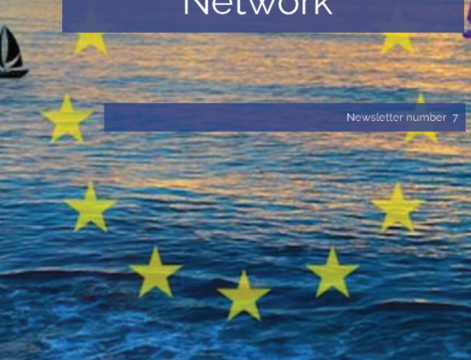
Published number 7 of the RUP Employment Network Newsletter
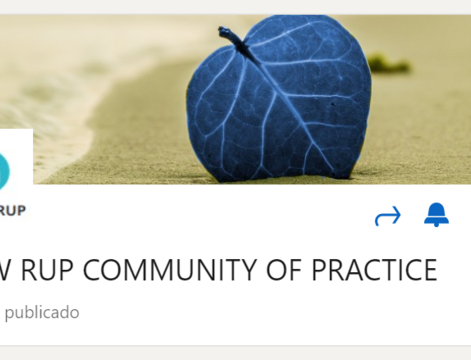
Community of Practice is created with the goal of keeping alive the cooperation: https://www.linkedin.com/groups/12536553/
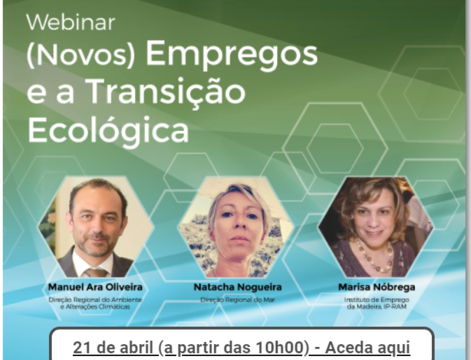
Istituto Emprego de Madera (The Maderan Grow RUP partner, organize an event to spread the results of the Action Plan in the framework of the ecological transiti
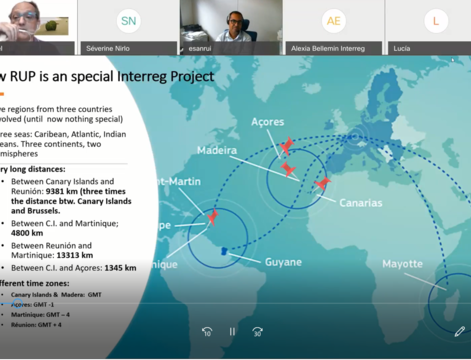
The Closing and dissemination event of the Project Grow RUP was held last April 15th
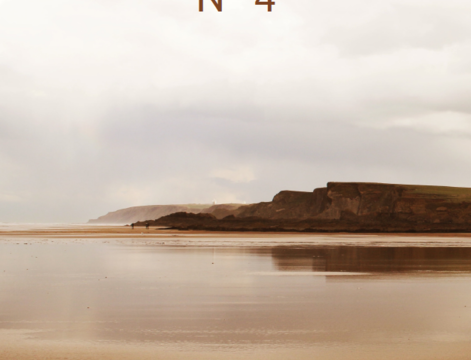
Numbers 3 and 4 of the NEW RUP EMPLOYMENT NETWORK NEWSLETTER (February, and March 2021) has been published. You can download it from our Library
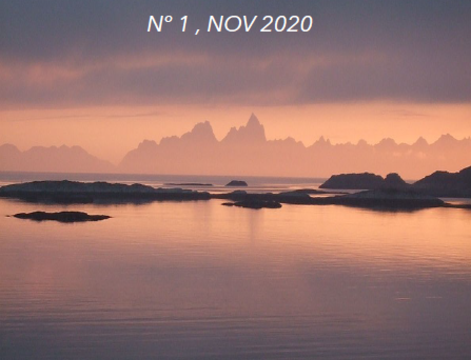
Second number of the RUP Employment Network Newsletter. Nov. 2020
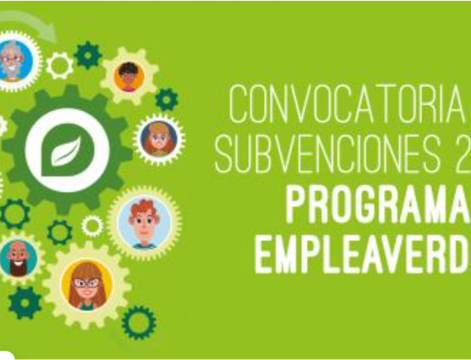
Interesting Call for porposals for projects in the blue and green economy in Spain, promoted by Fundacion Biodiversidad
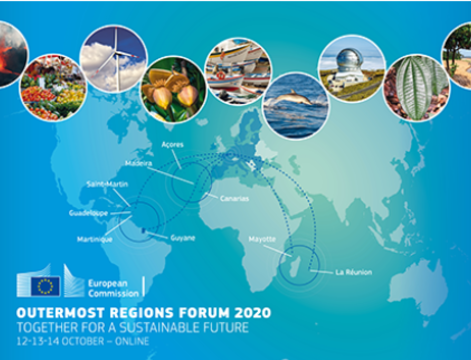
The 2020 Outermost regions Forum “Together for a sustainable future” organised by the European Commission -Directorate-General for Regional and Urban Policy - w
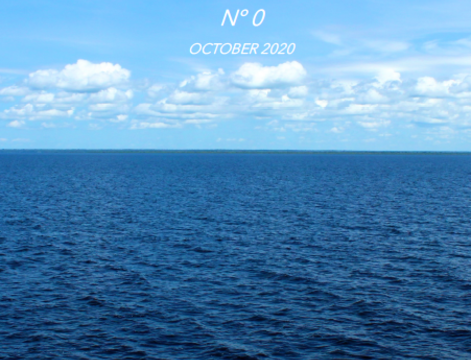
The RUP Employment Network, launch a monthly newsletter in order to promote a stable shared communication channel, including news and useful information